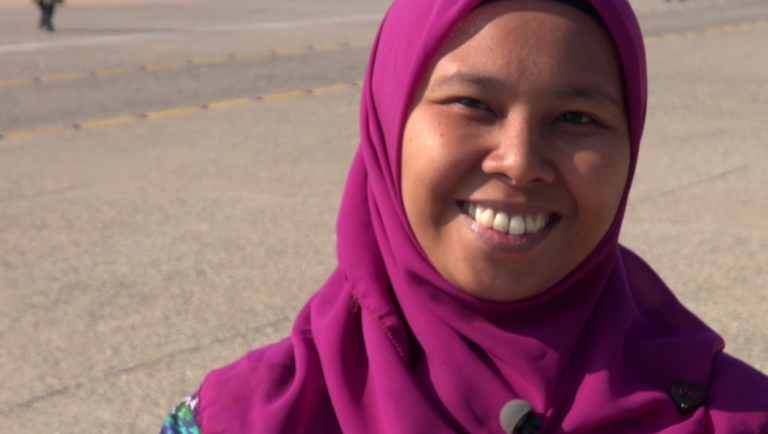
“Trade unions are criminalised in Indonesia”
Indonesia is keen to rush through the signing of its Comprehensive Economic Partnership Agreement (CEPA) with the EU. But Rachmi Hertanti, Executive Director of civil society organisation Indonesia for Global Justice(opens in new window) (IGJ) has warned that free trade agreements such as CEPA do not benefit Indonesian farmers, consumers and workers.
“President Jokowi very much wants investors come to Indonesia – he needs them to implement his ambitious economic programme,” explains Rachmi during a visit to SOMO and other European CSOs to discuss strategies to combat the Indonesian government’s free trade policy. Negotiations with the EU on the Comprehensive Economic Partnership Agreement (CEPA) started this year. “He aims to finalise the agreement in 2018. This is very fast – trade deals normally take longer.”
The Indonesian government also hopes to conclude talks even sooner – by the end of 2016 – for a regional SEPA between ASEAN(opens in new window) (of which Indonesia is a member), Australia, China, India, Japan, South Korea and New Zealand.
“President Jokowi is focused on strengthening Indonesia’s export sector, and expects these free trade agreements to create opportunities for exports in Europe, and in the United States,” says Rachmi. Indonesia hasn’t yet signed the Trans-Pacific Partnership (TTP), the free trade agreement between the United States and the other countries around the Pacific Ocean. “The Indonesian government said they’re still studying it, but they just waited for the outcome of the US presidential election,” says Rachmi.
Chickens market
IGJ believes these free trade agreements do not benefit the people of Indonesia. “Small-scale chicken farmers have already lost their market share to large chicken farmers from Brazil and Thailand,” says Rachmi. These imports also have a negative effect on Indonesian consumers. After the foreign chicken producers captured a substantial part of Indonesia’s chicken market, they started to abuse their monopoly position. “On Java, we noticed a sharp increase in price. One chicken started to cost over €4 – a high price for a basic Indonesian food staple.”
An end to trade union criminalisation
During her visit to the Netherlands, Rachmi visited the Dutch Ministry of Foreign Affairs to ask for a more “balanced” agreement between the EU and Indonesia. “It should ensure human rights and labour rights. At the moment, trade unions in Indonesia are criminalised. IGJ currently provides legal aid to 24 trade union members who are being prosecuted.”
“There’s no chance for civil society organisations and citizens to express their concerns to their own government,” adds Rachmi. “Not even the members of our parliament have a say in the free trade agreements that are now negotiated. Hopefully, the EU will listen.” she concludes.
Partners
Related content
-
 SOMO and IGJ cooperate to improve trade and investment agreementsPosted in category:NewsPublished on:
SOMO and IGJ cooperate to improve trade and investment agreementsPosted in category:NewsPublished on: -
The Netherlands – still a tax haven Published on:
 Arnold MerkiesPosted in category:Publication
Arnold MerkiesPosted in category:Publication Arnold Merkies
Arnold Merkies
-
 Tax avoidance in Mozambique’s extractive industriesPosted in category:Long read
Tax avoidance in Mozambique’s extractive industriesPosted in category:Long read Vincent KiezebrinkPublished on:
Vincent KiezebrinkPublished on:

